Description
ABSTRACT
Lis Pendens and Insecurity of Title to Land in Nigeria: A Call for Legislative Intervention
Gbenga Ojo* and Kanyinsola Ojo**
The central focus of this paper is on insecurity of title to land in Nigeria caused by the continued application of the anachronistic common law doctrine of lis pendens. The application of the doctrine has led to hardship, loss, anxiety, wanton destruction of property and unnecessary litigation on account of absence of a mechanism for prospective buyers to verify whether a property is subject to any pending suit. The solution suggested in this paper is legislative intervention by making lis pendens registrable; to serve as notice to the general public of pendency of litigation over land. The paper urges the legislature and law reform commissions in all the states of Nigeria to take steps to promulgate laws that would modify the application of the doctrine of lis pendens, as obtainable in other jurisdictions. The paper suggests that lis on recovery of title to land be compulsorily registrable, as registration would serve as notice to prospective buyers and reduce insecurity of title.
Keywords: Lis Pendens, Title to Land, Insecurity, Legislative Intervention.
INTRODUCTION
There are some common law doctrines that are archaic, anachronistic and obsolete. These doctrines have either been abolished or modified by legislation in England and in other jurisdictions that applied common laws. One of the doctrines is lis pendens. It was part of the common law received into Nigeria, and has remained in its raw form as part of our laws without modifications since then.1 While a case on title to land is pending in court, one of the parties, pendente lite transferor to cut his loss(es) could sell the land to unsuspecting innocent buyers, who cannot, no matter the level of the investigation, discover that there was a pending court case on the land. The buyer or buyers, pendente lite transferee, meanwhile, ignorant of the pending law suit, would have invested a lot of money on the development of the land. The fortunes or gains of the purchaser of such land will be dictated or determined by the result or outcome of the litigation. The transferee, would get to know about his misfortune, several years after, when the judgment creditor come calling, with the officers of the court to enforce the judgment, and wrestling from him the possession of the property. It does not matter that, in between, the transferee has obtained a certificate of occupancy over the land from the government. Ironically, one arm of government gives him a certificate of occupancy, while another arm of government dislodges him from the property, despite the certificate of occupancy. It becomes more complicated, where the transferee has mortgaged the land to a bank using the certificate of occupancy as security for the loan.
The above scenario has become very rampant in Lagos State, in particular. There are cases in different parts of the state, where judgment creditors, who have endured litigations for several decades, are struggling to dislodge “trespassers” on their land. The so-called “trespassers” may be bonafide purchasers of legal estate, for value without notice of the law suit.
* LL.M, BL. Principal Partner, Gbenga Ojo & Co., and Lecturer, Faculty of Law Lagos State University, Ojo.
** LL.B, BL. Partner, Gbenga Ojo & Co., Lagos.
- See section 32(1) of the Interpretation Act, Chapter 192, LFN 1990, which makes applicable “…the common law of England and the doctrines of equity, together with the statutes of general application that were in force in England on the 1st day of January, 1900…”.

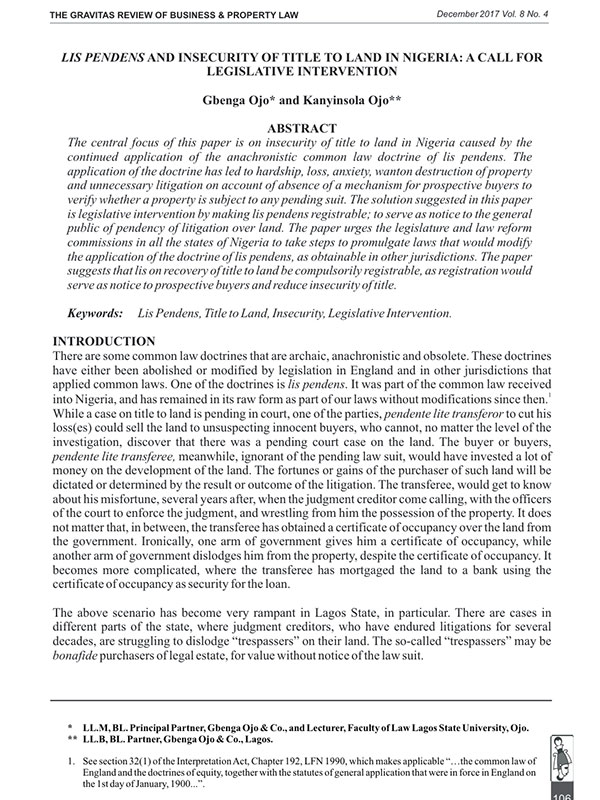
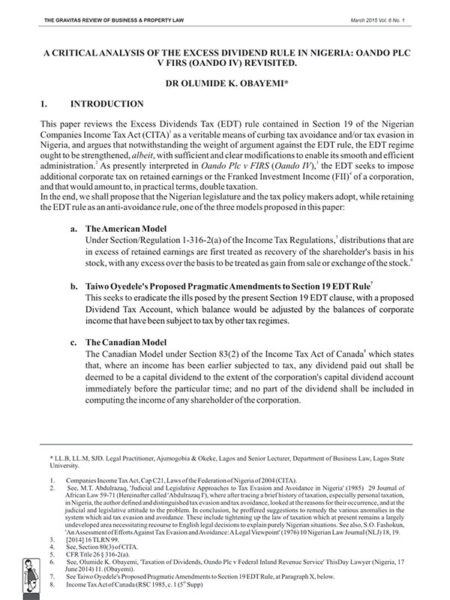
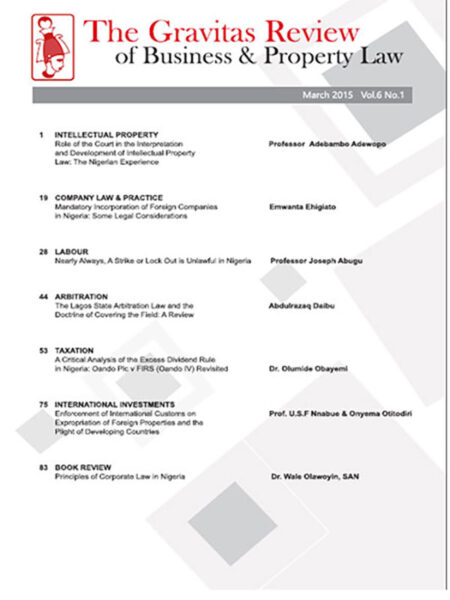
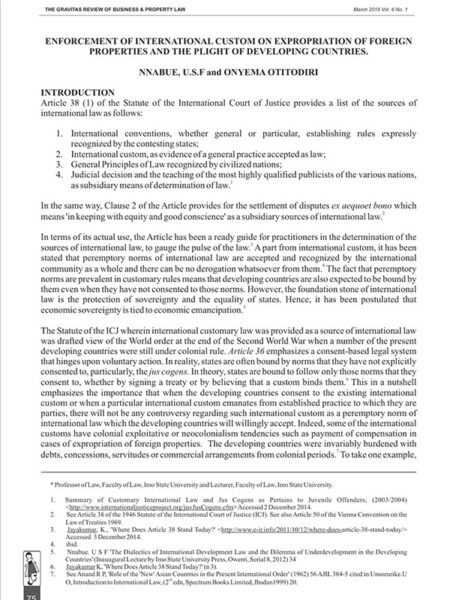
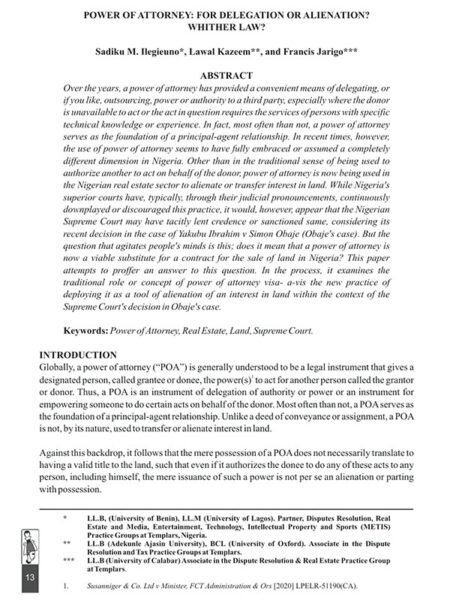


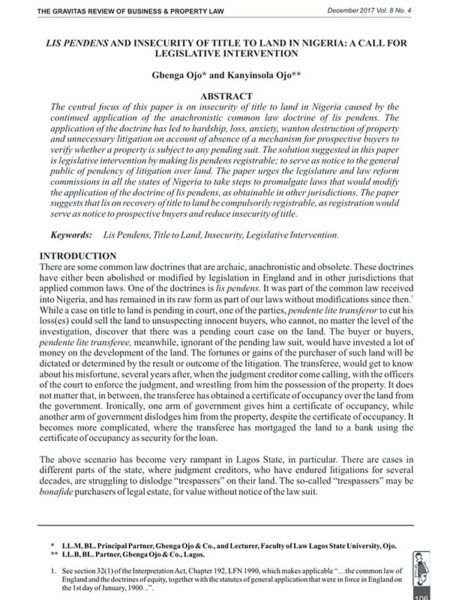
Reviews
There are no reviews yet.